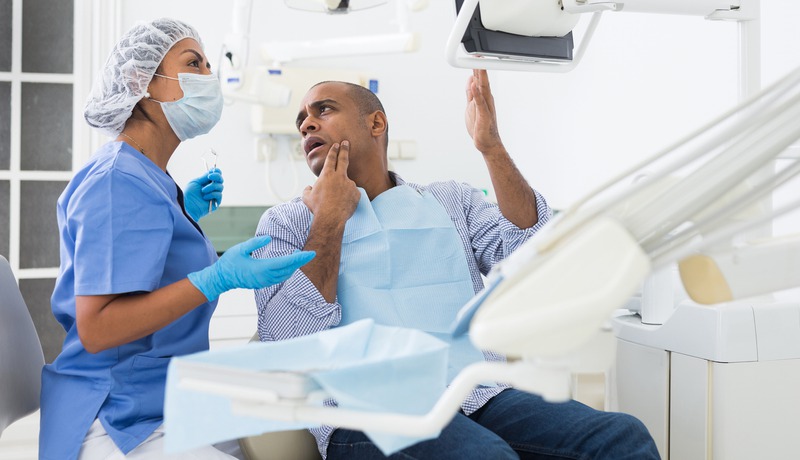Dental emergencies can strike out of nowhere, turning an ordinary day into a stressful situation. Whether it’s a sudden toothache or an accident that chips a tooth, knowing how to handle these incidents can make a big difference. Let’s walk through what you should do if you find yourself in a same-day dental emergency.
Recognizing a Dental Emergency
It’s crucial to quickly identify whether your dental issue qualifies as an emergency. Common emergencies include:
-
Severe toothache or jaw pain
-
A knocked-out or chipped tooth
-
Bleeding gums
-
Lost filling or crown
-
Swelling or abscesses
If you’re experiencing any of these symptoms, it’s time to take action.
Stay Calm and Assess the Situation
First and foremost, it’s essential to stay calm. Panicking won’t help and may hinder you from addressing the problem effectively. Take a moment to assess the situation. Is there any visible damage to your teeth or gums? Is the pain localized or spreading? This will help you explain your symptoms clearly to a dental professional.
Immediate Actions for Common Dental Emergencies
Severe Toothache
Rinse your mouth with warm water to clean it out. Floss gently to remove any food particles that might be stuck. Avoid placing aspirin directly on your gums as it can burn the tissue. Over-the-counter pain relievers may help until you see a dentist.
Knocked-Out Tooth
If a tooth has been knocked out, handle it by the crown, not the root. Rinse it gently if it’s dirty but do not scrub. Try placing it back in the socket. If that’s not possible, store it in a container of milk or a tooth preservation product. Seek dental care immediately.
Chipped or Broken Tooth
Rinse your mouth with warm water and apply a cold compress to reduce swelling. Collect any broken pieces and bring them along when visiting the dentist.
Lost Filling or Crown
If you lose a filling or crown, use dental cement or sugar-free gum to temporarily fill the gap. This will protect the tooth until you can see a dentist.
Contacting an Emergency Dentist
Once you’ve taken immediate action, it’s time to contact a professional. Knowing how to find a dentist in Sterling who can treat emergencies is crucial. Search online or ask friends for recommendations. Explain your situation clearly and ask if they can accommodate a same-day appointment.
Avoid Common Pitfalls
During a dental emergency, it might be tempting to try DIY solutions. However, some actions can do more harm than good:
-
Avoid using sharp objects to poke or clean your teeth
-
Don’t ignore persistent pain or believe it will just go away
-
Refrain from home remedies that aren’t dentist-approved
Thinking About Prevention
When handling an emergency, think about how to avoid similar problems in the future. Go for dental check-ups regularly to catch issues early. Wear a mouthguard if you play sports, as it helps protect your teeth from injury. Also, brush and floss every day to keep your teeth and gums healthy. These habits help lower the risk of dental emergencies and keep your mouth in good shape over time, making you less likely to face similar issues again.
The Importance of Immediate Professional Care
Seeking professional dental help quickly is important because it can save your tooth and stop problems from getting worse. Dental emergencies are not only painful—they can also lead to serious complications if ignored. For example, an abscess, which is a pocket of infection, needs fast treatment to prevent the infection from spreading. Acting promptly not only eases pain but also protects your overall health and prevents more serious and costly dental issues in the future.
Long-Term Solutions and Follow-Up Care
Once the immediate crisis is over, discussing long-term solutions with your dentist is vital. Whether it’s restorative work or Sterling Invisalign treatment, creating a plan with your dentist can help maintain your smile. Regular follow-up appointments ensure that your recovery is on track and prevent recurring issues.
Cost Considerations for Dental Emergencies
Dental emergencies can bring unexpected costs. Check if your insurance covers emergency treatment and understand what expenses you might incur. Some dental offices offer payment plans, making it easier to manage the financial side of emergency care.
Understanding the Psychological Impact
A dental emergency isn’t just a physical issue; it can be mentally distressing, too. The sudden pain and disruption can cause anxiety. Consider discussing these feelings with your dentist, who might provide advice or resources for managing dental anxiety.
Support Systems and Resources
Don’t handle the situation alone. Reach out to friends or family for support. They can not only provide comfort but also help with logistics, like driving to the dentist. Online forums or support groups can be beneficial for sharing experiences and advice with others who’ve faced similar emergencies.
Final Thoughts
In conclusion, handling a same-day dental emergency effectively involves quick recognition, calm assessment, and immediate action. Whether it’s dealing with a severe toothache or a knocked-out tooth, knowing the steps to follow can significantly ease the situation. Prioritizing professional care is crucial to prevent complications, and considering long-term solutions with your dentist ensures ongoing oral health. While managing financial and psychological aspects might seem daunting, leveraging support systems and understanding your insurance can provide relief. Remember, prevention through regular check-ups and good oral hygiene is key to reducing future emergencies.





